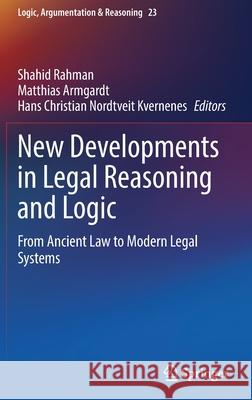New Developments in Legal Reasoning and Logic: From Ancient Law to Modern Legal Systems » książka
topmenu
New Developments in Legal Reasoning and Logic: From Ancient Law to Modern Legal Systems
ISBN-13: 9783030700836 / Angielski / Twarda / 2021 / 439 str.
Kategorie BISAC:
Wydawca:
Springer
Seria wydawnicza:
Język:
Angielski
ISBN-13:
9783030700836
Rok wydania:
2021
Wydanie:
2021
Numer serii:
000461455
Ilość stron:
439
Waga:
0.79 kg
Wymiary:
23.39 x 15.6 x 2.54
Oprawa:
Twarda
Wolumenów:
01
Dodatkowe informacje:
Wydanie ilustrowane











